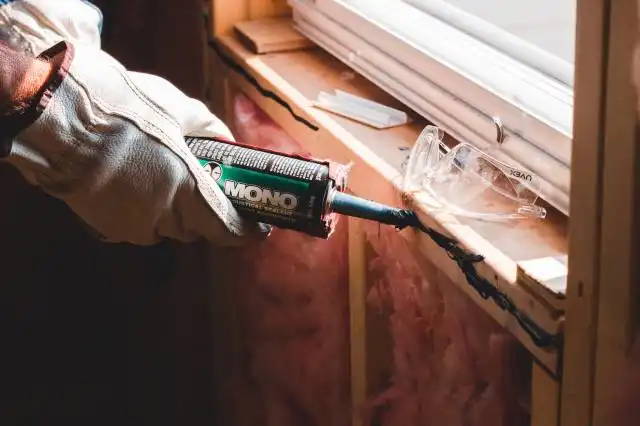Start a Board Game Lounge
Reviving the Joy of Traditional Games: Your Own Board Game Lounge!
| Updated


BOARD GAME LOUNGE
Dabble in the fun, competitive universe of a Board Game Lounge! Think Monopoly on Monday, Chess on Tuesday, and Scrabble on Sunday; every day bringing a new challenge to your doorstep. This business revolves around providing a comfy and inviting environment for people to come together, engage in strategic, mind-bending board games, and relish in the joy of friendly competition. As a new entrepreneur, this is your chance to curate a social melting pot while promoting good-old non-digital entertainment.
Jump to Business Plan
RELATED BUSINESS IDEAS
Browse ALL Hospitality & Leisure Ventures Business Ideas
Discover Your Perfect Domain
Unlock the door to your online success with our hand-picked selection of premium domain names. Whether you're starting a new venture or rebranding an existing one, the right domain can set the tone for your digital presence. Browse through our curated list, each with its unique potential to enhance your brand's visibility and credibility.
BOARD GAME LOUNGE MINI BUSINESS PLAN
This a quick reality check to help you identify the strengths and weaknesses of your business concept before you dive in.
Expected Percent Margins:
- Gross Margin: 70-80% (mainly food & beverage)
- Net Profit Margin: 15-25%
Earnings Expectations:
- Daily Earnings: $400 - $800
- Weekly Earnings: $2,800 - $5,600
- Monthly Earnings: $12,000 - $24,000
- Annual Earnings: $144,000 - $288,000
Actions to hit those numbers:
Inventory Management:
- Initial Investment: Approx $5000-$10000 for a good variety of board games.
- Supplier Network: Get in touch with several distributors for new & unique board games.
Marketing and Customer Acquisition:
- Social Media: Post quality content 5-7 times a week, highlighting game nights, new arrivals, events.
- Local Community: Organize special event nights like tournaments and collaborations with local businesses.
Sales and Food & Beverage:
- Menu: Offer a selection of snacks and beverages, aiming for a food cost of no more than 30-35%.
- Promotions: Run regular promotions, like "Game Night Specials".
Cost Control:
- Rent: Aim for a location where rent is less than 10% of expected monthly income.
- Utilities and Maintenance: Budget at least $600-$800 per month.
Business Operations:
- Operating Hours: Open 6 days a week, 8-12 hours a day.
- Customer Flow: Aim for 20-40 customers per day, with an average spend of $20-$40.
Note: These are ballpark figures and can fluctuate based on several factors: location, size of lounge, types of games offered, competitive landscape, etc. Always consult with a financial advisor or a business consultant to get more precise numbers and strategies.
NOT WHAT YOU HAD IN MIND? Here are more ideas



Browse ALL Hospitality & Leisure Ventures Business Ideas
Grab Your Business Website Name
Before you get caught up in the whirlwind of setting up your business, invest in a domain name. It's a small but significant step that lays the foundation for your brand and makes it easier for customers to find and trust you. Just like you wouldn't build a house without securing the land first, don't build a business without securing your domain name.
"Why? Can't that wait?" Here's why it shouldn't
Step 1: Determine if the Business is the Right Endeavor
Breakdown of Startup Expenses
Before starting a board game lounge, it is important to understand the financial commitment that comes with it. This includes the cost of renting a space, purchasing furniture, board games, and any other necessary equipment. Additionally, you will need to factor in the cost of any permits or licenses that may be required to operate a business. It is important to be realistic about the startup costs and ensure that you have the necessary funds to cover them.
Breakdown of Ongoing Expenses
Once you have established your board game lounge, there are ongoing expenses that you will need to consider. This includes the cost of utilities, such as electricity and water, as well as the cost of any staff that you may need to hire. Additionally, you will need to factor in the cost of any supplies that you may need to purchase, such as board games and snacks. It is important to be aware of the ongoing expenses and ensure that you have the necessary funds to cover them.
Examples of Ways to Make Money
There are a variety of ways that you can make money with a board game lounge. One way is to charge an admission fee for customers to enter the lounge. Additionally, you can offer board game rentals or sell snacks and drinks to customers. You can also host tournaments or special events that customers can pay to participate in. It is important to be creative and find ways to generate revenue with your board game lounge.
Step 2: Name the Business
When choosing a name for your board game lounge, it is important to consider the type of atmosphere you want to create. You should also consider the type of games you will offer and the target demographic. Additionally, you should think about the location of your business and the type of branding you want to create. It is important to pick a name that is memorable and will stand out from the competition. You should also make sure that the name is not already taken by another business. You can do this by checking with the local government to see if the name is already registered. Additionally, you can search online to see if the name is already in use. Once you have chosen a name, you should register it with the local government and secure any necessary trademarks. This will ensure that your business name is legally protected and that no one else can use it.
Step 3: Find a Location
When looking for a location for your board game lounge, there are several considerations to keep in mind. First, you will need to determine the size of the space you need. Consider the number of people you are expecting to serve and the amount of space they will need to play the games. You will also need to consider the amount of storage space you will need for the games and other supplies. Additionally, you will need to consider the accessibility of the space, as well as the cost of the rent.
Researching Potential Locations
Once you have determined the size and type of space you need, you can begin researching potential locations. Start by searching online for available spaces in your area. You can also contact local real estate agents to help you find a suitable space. Additionally, you can reach out to local business owners to see if they have any spaces available for rent. Once you have narrowed down your search, you can visit the potential locations to get a better feel for the space.
Negotiating a Lease
Once you have found a suitable location, you can begin negotiating a lease. Make sure to read through the lease carefully and ask questions if anything is unclear. You should also consider hiring a lawyer to review the lease before signing. Additionally, you may be able to negotiate a lower rent or other concessions if you are willing to sign a longer lease.
Securing the Location
Once you have negotiated a lease, you will need to secure the location. This includes paying the first month's rent and any security deposits. You will also need to purchase any necessary insurance for the space. Additionally, you may need to apply for any necessary permits or licenses to operate your business. Once you have secured the location, you can begin the process of setting up your board game lounge.
Step 4: Create a Business Plan
Creating a business plan is an essential step in starting a board game lounge. A business plan should include a description of the business, the target market, the competitive landscape, marketing strategies, financial projections, and an operational plan.
When creating a business plan, the first step is to define the business. This includes the type of business, the products and services offered, the location, and the target market. It should also include the mission, vision, and values of the business.
The next step is to define the target market. This includes researching the demographics of the area, the types of board games that are popular, and the types of customers that would be interested in the board game lounge.
The competitive landscape should also be included in the business plan. This includes researching the competition and understanding their strengths and weaknesses. It should also include a comparison of the board game lounge to the competition.
The marketing strategies should include a description of the marketing channels that will be used, such as social media, advertising, and word-of-mouth. It should also include a plan for how to reach the target market and how to differentiate the board game lounge from the competition.
The financial projections should include a breakdown of startup expenses and ongoing expenses. It should also include a projection of how much money the board game lounge will make and how long it will take to break even.
Finally, the operational plan should include a description of the day-to-day operations of the board game lounge. This includes staffing, inventory management, customer service, and any other operational tasks. It should also include a plan for how to make money, such as charging for admission, selling food and drinks, and offering memberships.
Step 5: Obtain Licenses and Permits
Before starting a board game lounge, it is important to understand the types of licenses and permits needed to operate a business. Depending on the state, the type of business, and the services offered, the types of licenses and permits needed may vary. Generally, businesses will need to obtain a business license, a sales tax permit, and a liquor license, if applicable. Additionally, some states may require a food service license if food and beverages are served. It is important to research the specific licenses and permits needed in the state the business is located.
How to Obtain Licenses and Permits
Once the types of licenses and permits needed have been determined, the next step is to obtain them. This process can be done by visiting the local government office or website. During this process, the business owner will need to provide the necessary paperwork and fees. Additionally, the business owner may need to provide proof of insurance, a business plan, and other documents. After the paperwork has been submitted, the government office will review the application and issue the licenses and permits.
Cost of Licenses and Permits
The cost of licenses and permits will vary depending on the state and the type of business. Generally, the cost of a business license and a sales tax permit will be relatively low. However, the cost of a liquor license may be more expensive. Additionally, the cost of a food service license may also be more expensive. It is important to research the cost of the licenses and permits needed in the state the business is located.
Renewal of Licenses and Permits
Once the licenses and permits have been obtained, it is important to understand the renewal process. Generally, the licenses and permits will need to be renewed on an annual basis. The renewal process may require the business owner to submit paperwork and fees. Additionally, the business owner may need to provide proof of insurance and other documents. After the paperwork has been submitted, the government office will review the application and renew the licenses and permits.
Step 6: Purchase Supplies
When starting a board game lounge, there are certain supplies that are necessary to ensure a successful business. For example, you will need to purchase board games, tables and chairs, a cash register, and other items to make the lounge comfortable and inviting. You may also want to purchase decorations, such as posters, to make the lounge more inviting. Additionally, you may want to consider purchasing snacks and drinks to offer customers.
Where to Purchase Supplies
When purchasing supplies for your board game lounge, it is important to shop around to get the best deals. Look for deals online, as well as in local stores. Additionally, you may want to consider purchasing used items, such as tables and chairs, to save money. You may also want to consider purchasing items in bulk, as this can help you save money in the long run. Finally, it is important to consider the quality of the items you are purchasing, as this will determine how long they will last.
Step 7: Market the Business
Once the board game lounge is up and running, it is important to get the word out about the business. There are a variety of ways to market the business, including social media, word of mouth, and advertising.
Social media is a great way to market the business. Creating a website and accounts on popular social media platforms such as Facebook, Twitter, and Instagram can help to spread the word about the board game lounge. Posting regularly and engaging with customers can help to build a loyal following.
Word of mouth is also a great way to market the business. Encouraging customers to tell their friends and family about the lounge can help to bring in new customers. Offering discounts or promotions to customers who refer new customers can be a great way to incentivize word of mouth marketing.
Advertising is another great way to market the business. Placing advertisements in local newspapers, magazines, and radio stations can help to get the word out about the board game lounge. Additionally, placing flyers in local businesses or distributing flyers door to door can help to get the word out about the business.
Tips on How to Market the Business
When marketing the business, it is important to focus on the unique aspects of the board game lounge. Emphasizing the unique atmosphere and the variety of games available can help to draw in customers. Additionally, offering discounts or promotions can help to draw in new customers.
Additionally, it is important to be consistent when marketing the business. Posting regularly on social media and advertising regularly can help to keep the board game lounge top of mind for potential customers.
Finally, it is important to track the success of marketing efforts. Keeping track of the number of customers that come in as a result of a particular marketing effort can help to determine which marketing efforts are most successful. This can help to ensure that the board game lounge is getting the most out of its marketing efforts.
Step 8: Open the Business
Opening a business can be a daunting task, but with the right preparation and research, it can be done. Before opening the business, it is important to make sure that all legal requirements are met. This includes obtaining any necessary permits, licenses, and insurance. Additionally, it is important to have a plan for marketing the business and getting the word out about the board game lounge. This could include creating a website, using social media, and creating flyers or other promotional materials. It is also important to have a plan for staffing the business and making sure that there are enough employees to handle the expected demand.
Tips on Managing the Business
Once the business is open, it is important to make sure that it is properly managed. This includes setting up a system for tracking sales, managing inventory, and tracking customer satisfaction. Additionally, it is important to create policies and procedures for employees and customers. This could include rules for how to handle customer complaints, how to handle disputes between customers, and how to handle refunds or exchanges. It is also important to create a system for tracking employee hours and ensuring that employees are paid on time. Finally, it is important to create a system for tracking customer feedback and making sure that customer needs are being met.
Step 9: Manage the Business
Managing a business is an important part of ensuring its success. There are many ways to manage the business, such as tracking sales, managing inventory, and managing staff. Tracking sales is important to ensure that the business is making a profit and to track customer trends. Managing inventory is important to ensure that the business has enough stock to meet customer demand. Managing staff is important to ensure that employees are meeting expectations and that customer service is up to par.
Tips for Managing the Business
When managing the business, it is important to stay organized and to have a plan. Create a system for tracking sales, inventory, and staff. Set goals for the business and track progress towards those goals. Develop systems for customer service and employee training. Finally, stay up to date on industry trends and adjust the business accordingly.
EXPLORE MORE CATEGORIES
Browse ALL Business Idea Categories
TAKE THE NEXT STEPS









